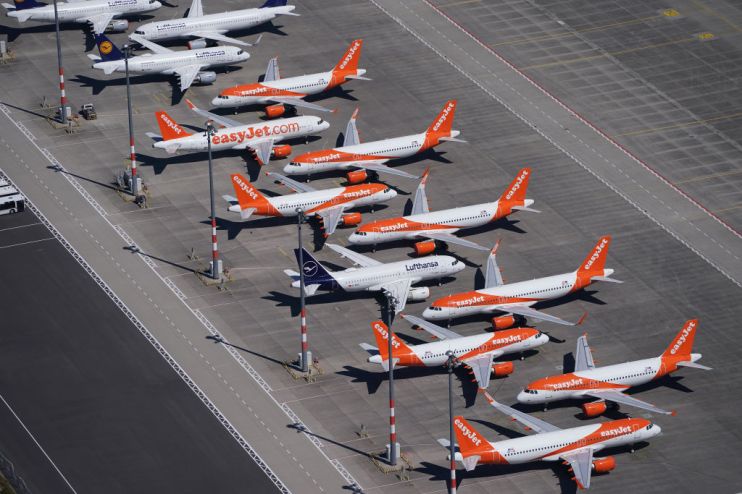Easyjet removes plane seats to slash number of stewards on board to three

Easyjet has removed the back row seats from its A319 planes to cope with labour shortages.
By removing the six seats, capacity on easyJet planes has gone down to 150, requiring only three cabin crew members instead of four.
The airline said the decision was an “effective way” of operating its fleet and it was compliant with Civil Aviation Authority (CAA) requirements.
“This summer we will be operating our UK A319 fleet with a maximum of 150 passengers onboard and three crew in line with CAA regulations,” the airline said a statement.
“This is an effective way of operating our fleet while building additional resilience and flexibility into our operation this summer where we expect to be back to near 2019 levels of flying.”
Yet to be replicated by others, easyJet’s decision has not resulted in prices going up as it concerned a very small number of seats.
Commenting on the decision, aviation professor Francesco Ragni said removing the last row “was a very smart decision,” because of the operational benefits it will bring.
“It’s much cheaper to reduce passenger ratios than cancel flights due to staff shortages which will have less impact on customers,” added travel expert Rob Staines.
Last month, easyJet was forced to delay and cancel hundreds of flights following a spike in Covid-related infections among its staff, City A.M. reported.
The airline, who had already recruited most the of new staff needed for the ramped-up summer season, said last month shortages were also caused by a delay in government vetting.
However, a few hours later, it retracted its comment and said it was working alongside partners to “to expedite the process so that we can get more crew onboard in the short term.”
easyJet is not the only carrier to face labour shortages, as the issue has become industry-wide.
Airlines UK’s chief executive Alderslade argued last week that while Brexit shrank significantly the recruitment pool the sector has available, post-Covid, those who were made redundant because of the pandemic have decided not to come back.
“There’s a huge number of challenges [to overcome in the industry] and labour will be a real issue moving forward, and not just in the short term,” he said.
“It’s going to be a difficult few months as the labour just isn’t there, and it will take a number of years to get back to where we were.”
A Department for Transport (DfT) redirected City A.M. to a statement by transport secretary Grant Shapps from late last month.
Shapps announced the UK Government would help the sector speed up bureaucracy.
“Using our post-Brexit freedoms, we are changing the law to provide the sector with more flexibility when training new employees, which will help it to fill vacancies more quickly,” he said on 29 April.
“To be clear, I will never compromise safety or security in any shape or form, and thorough background checks will continue to be required, but I will assist in speeding bureaucracy where possible, and these changes allow the sector to start training people earlier on in the process.”